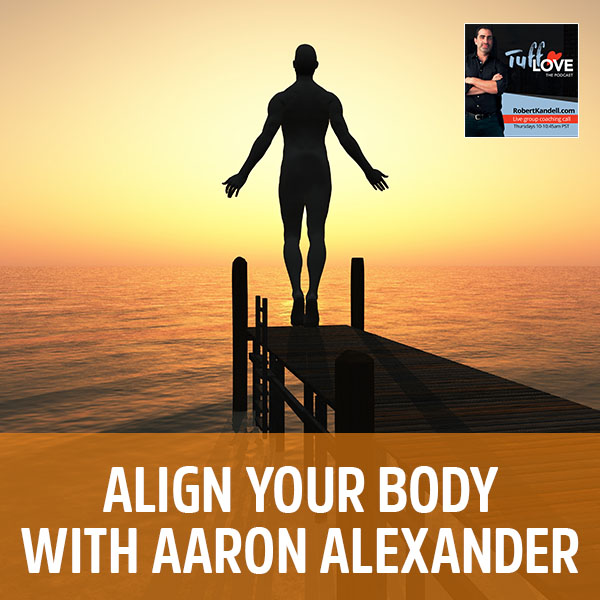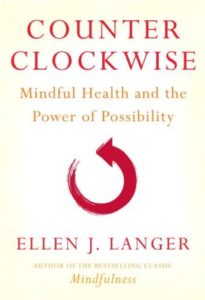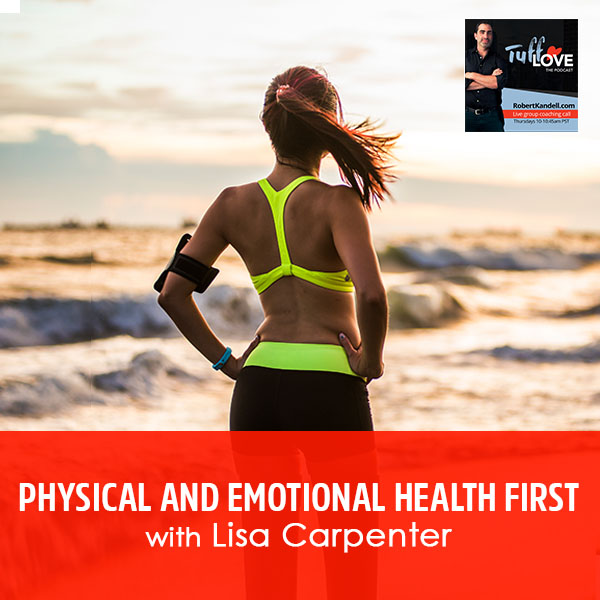
171: Align Your Body with Aaron Alexander
Dec 6, 2018
Every moment is an opportunity to cultivate your mind, body, and movement. That is Aaron Alexander’s tagline for Align Therapy because he believes it would be insane for that not to be the way that you live your life. Aaron is an accomplished manual therapist and movement coach with over thirteen years of professional experience. He founded Align Therapy, an integrated approach to functional movement and self-care, with a mission to inspire millions of driven individuals to confidently re-inhabit their bodies to be strong, flexible and pain-free by moving functionally during every daily task. Aaron shares some interesting ideas and concepts on how to align your body and improve your health with really simple little tips.
171: Align Your Body with Aaron Alexander
This is episode 171, Align Your Body with Aaron Alexander. I got to meet Aaron at a dinner party in Malibu. From the moment I met him I was like, “This guy is interesting.” He’s this handsome, strong, knowledgeable and powerful man with interesting ideas and concepts about how to improve your health with simple little ideas. I will admit that I’m triggered to route the episode because he’s nailing me left and right about my own practices. I’m going to take notes and do his online program. I’m going the whole full boat with Aaron because I think it’s so interesting.
—
Welcome to Tuff Love with my friend, Aaron Alexander of Align Therapy. Welcome, Aaron.
Thanks for having me.
It’s my pleasure. I got to meet Aaron at a dinner with Neil Strauss and immediately I knew I had met someone very interesting. I’m very grateful that you want to come on the episode and talk about your work. It’s going to be a very interesting conversation because you are an interesting man. I get to meet a lot of interesting people in this lifetime, but I can tell you after looking at your website and watching your videos, you are an interesting guy. The line is, “Every moment is an opportunity to cultivate your mind, body and movement.” I love that all these things we’re doing in terms of living and not consciously living are impacting us and how we can up level it. Welcome to this episode.
I appreciate that. I’m glad that you appreciate that, “Every moment is an opportunity,” part. That’s what it’s all about.
Could you give us more on that? That’s your tagline and I know and that’s what you believe in, but tell the people why you believe in and what does it mean for you.
Your body's just always listening to what you're doing. Click To TweetIt would be insane not to be the way that you lead your life. We isolate our movement practice to 45 minutes if I’m going to see a personal trainer, maybe or probably not, going to a yoga class or Pilates or whatever you’re doing. Most of us, we put that into this small container throughout the week. The rest of the time, we don’t pay attention. We wonder why we have neck pain, shoulder pain or why we’re stressed or why we can’t sort out that extra weight that we have on our body where it may be. Meanwhile, we have this extra 120 odd hours that we’re not paying attention. To me, life would be so much more boring if we didn’t have the capacity to pay attention to those like subtle aspects throughout our day.
As you’re walking, you can pay attention. Is there a way that I can be walking better? As you’re pouring tea, you’d be paying attention to your spinal mechanics. As you’re picking something up, you pay attention to maybe your hip hinge. As you’re sitting down for something like this, you can be sitting on the floor going through different ranges of motion. Literally, your whole day can start to become more like yoga as opposed to putting that into like a little corner of your week. That’s my big interest here.
I’m guilty. I have a personal trainer, 24-hour Fitness twice a week, kick my butt and then the rest of the week I lean on it. I lean on those two sessions to keep me sane.
I’m glad you have them. It’s a big deal, but it’s not where we came from. Us outsourcing our movements to technology and to machines and all that, that’s so brand new. We’ve been around for however seven-odd million years ago. I was reading this thing of how we used to be arboreal creatures, crawling around the trees and hanging and breaking. Maybe we came from Adam and Eve, I don’t know what happened. Throughout our history, we’ve been moving throughout nature. We need to look at the sun. Usually, we’re waking up with the sun or walking over contoured surfaces. We have to build a shelter. All of a sudden, literally you could to sit at your house, press buttons in your cell phone and have food be shipped directly to your face. It’s confusing for the body. We are saying all that stuff and it sounds like I’m suggesting we should go and live out in a tent in Idaho or something. You can start to integrate some of those movement mechanics into the way that you sit and write or the way that you walk to the storeroom and grab groceries. We can start to integrate some of those concepts into normal modern life.
My wife, Morgan, who’s a functional nutritionist talks about the importance of taking off your shoes and walking on the ground. She’s a big fan of that. She’s a big fan of getting back into nature. I see it. You’re talking about it’s even more inspiring of thinking in the last 100 years of how far we were in changes in technology, how much more inside, how much more we put on screens and how younger we’re on screens. You’re talking about something that should be talked about.

Align Your Body: When you’re focusing in on the screen like we’re all doing throughout the day, it literally stresses us out. It puts us into this fight-flight-focus-attack type place.
Even with screens. I mentioned I love doing in-person things. Part of that is because looking into a screen, that’s a big opportunity cost or it’s a liability in a sense because when you’re focusing in on the screen like we’re all doing throughout the day, it literally stresses us out. It puts us into more of this fight-flight focused attack type place. If you’re walking, you look up into the trees, find a bird, whatever. As you go out into that open, expansive, panoramic vision, it literally calms your nervous system. Those are actually muscular contractions in the eyes. These muscles called ciliary muscles that will refract light, spanning contract that lens to allow light to enter so you can see the image clearly.
When you look out into the distance, those muscles in and around your face and your eye, they can calm down. It’s the same thing. Think of it like if you’re holding your fist. Imagine as we’re talking or people reading, imagine you take your fist, you squeeze them tight. You’re like, “For 30 minutes, I’ll squeeze my fist like this.” You’d be like, “That’s ridiculous. It’s going to stress me out.” That’s what we do with our face. That’s what we do with our eyes. Living in a more natural environment, aka, your living room by a window, looking out the window. You don’t need to do the tent thing. You can literally start to speak into some of those old patterns that we would do. Naturally, you’d walk through the woods and you’d be looking at different things throughout the trees and such. It’s where our evolution came from. We need it.
What I’m hearing and appreciating is this concept of small little changes, baby, minute changes. Things that don’t have to be as huge and massive. They’re little details to impact your life.
That’s it.
When we had dinner, I think it gave the group the five things that changed your life. One that impacted me was hanging. You’re passionate about the concept of hanging. Can you tell the audience about your viewpoints and ideas about hanging two minutes a day?
Contraction essentially is a parasite to your body. Click To TweetThere’s an orthopedic surgeon called Dr. John Kirsch, who wrote a book called Shoulder Pain? and then has some subtitle underneath it. He had a few things, but what this book was about was the impact of getting people literally to hang. I think it was a couple minutes a day. It’s not a lot. It’s spending some time hanging with that. When the shoulders are in that fully flexed overhead position, it literally reshaped the whole shoulder girdle. We tend to be chronically getting pinched around our shoulders because we’re chronically flexed forward. That’s also tied into things like a decrease in testosterone and increase in stress hormones. When you flex ourselves into this protective position, physiologically, we’re listening that we’re saying, “There’s danger in the room. I’m flexing forward to protect.”
Something as simple as grabbing a pull up bar for $30 and throwing it in between your office door or whatever, a door that you walk through a lot, you’re literally starting to rewind some of these flight patterns in your physiology. Also starting to restructure your shoulder girdle so maybe get rid of the pain. That would be great, but also to feel more confident. If anybody is plagued with having a personality, you’ll notice that if you go in and do to a certain like emotional posture, you’ll feel that emotion. We’re practicing staring into a cell phone all day long or staring at a computer screen and hunching forward in the car. If you would look at that person hunched over, looking into their cell phone, you didn’t understand what they were doing and see the cell phone, you’d think that they were depressed.
Physiologically, your body is in that same place. It’s like, “Robert is bummed out.” It was like, “No, Robert was checking this text or liking cat videos on Instagram,” or whatever. Physiologically, your body thinks that you’re bummed. It starts up-regulating all these hormones to say, “This is the cocktail of depression.” Depression is the number one leading cause of disability worldwide. As we’re structurally going into this direction of hunching over into a depressed archetypal physical position. At the same time, sales of anti-anxiety and antidepressants and all that stuff is higher than it’s ever been. I think there’s definitely a connection. I don’t think there’s any way to avoid it.
This is blowing my mind a little bit because it makes sense. There are so many ways to go with this. The first is I see how little people think about this. I’m grateful that you’re even bringing it up. If no one does anything with it, at least there’s awareness. I think the next time I’m hunching over with my cell phone, I’m going to be thinking, “This is like being depressed.” It’s an awareness of something I didn’t have an acumen in. It’s so interesting how obvious it is at the same time. It’s so obvious at the same time.
That’s something that can happen to people. We can come pathologically obsessed with being happy or being upright, which that would also be imbalanced. If you go to a yoga class, you’ll go through a million different spinal-flexions. It’s having that global spinal flexion is valuable. Global is like if you’re going all the way up through the neck, the cervical spine and thoracic and lumbar, it’s like a fishing pole. You’ve been through the whole thing. That’s valuable as is extension, as is neutral, as is lateral side bending, all the different ranges of motion. It’s not like what I’m condoning or suggesting is that people are obsessed with being stacked up or like there’s a stick in your ass. It’s okay to experience the whole gamut of emotions. That’s what we’re doing here. Be aware that your body is an instrument. As you go into those various different ranges of motion with your body, you’re playing that physiological sound on your body. Your body is always listening to what you’re doing. That’s all I’m saying.

Align Your Body: The way that you perceive yourself also affects the way everybody else perceives you.
Your history is more in Rolfing. That’s where we started. How do you get into this? What was your pathway to come to this point?
Destroying myself with bodybuilding probably, but not so much bodybuilding. Bodybuilding was a symptom of a lot of insecurity and stuff. You can do bodybuilding and be a healthy balanced person. It’s more complicated. It’s isolating 640 odd parts. It’s not easy to balance that, whereas if you do more dynamic, full functional type movements in your life. It’s the practice of integrating all those parts, which is more convenient. There is value to isolating parts when they are out of sync, out of balance. It’s not to totally poo-poo on bodybuilding stuff. I broke myself down being imbalanced with the way that I approached fitness. I started having all sorts of interesting injuries manifest. I moved to Hawaii and got into like massage therapy and then Rolfing. I was studying psychology and getting curious about what makes the human tick. It’s an ongoing process. I feel like I know less now than I did before. It sounds like some cliché to say but I’m like, “There’s so much more to sort out with this thing.” It’s been an ongoing curiosity.
Did you go into bodybuilding to solve an issue about your own insecurity?
You’d say that. I felt I was worthy of love, I guess you could say. Maybe if I was big, strong and masculine, it probably would be the thing. I think that would probably be more honest. At one point, I think it would feel cooler and stuff like that, but I think that would probably be more of a root sensation. It’s like, “Am I worthy?”
I watched a bunch of your videos. I’ve got little obsessed there, I’ll admit it. This is new information on some level of the fine details. The little changes, the material, the content you’re putting out there is valuable. I recommend checking out his YouTube channel where there’s a whole bunch of little details. There was one video about like working on the walk, the details of the walk. One in the kitchen where you were dancing with your eggs. You were like prancing almost. You had your skillet and you were like prancing on there. I felt gratitude that you were so open.
You can't separate the emotions from the body. It's all one thing. Click To TweetI always do that and actually I don’t even eat breakfast anymore. I’m still open to that. It’s that there’s that option. You know the crabs in the bucket analogy, like the crabs, lobsters, whatever, crustaceans, they’ll pull each other back into the bucket as they’re trying to get out. They’re trying to escape and go back to the ocean. It’s like, “No, you’re in the bucket. You’re staying with me.” They chop each other’s claws out, pulling it back down to the bucket. It’s like Stockholm syndrome. That’s what we do in our society. There’s a bunch of sick people moving around and stuck on fill in the blank, whatever. If they were to do something like maybe take their shoes off, maybe go for a hike with their shirt off in the sun. It would be like, “What a hippie.” It’s my biology. I’m trying to heal myself.
You’re this very strong, handsome, powerful man when I met. At the same time, I felt you deeply connected to your feminine side. You were flamboyant. There was this theatrical way. You did everything. I felt grateful for that because one of my pet projects is giving people permission to bring what’s inside out, to live Unhidden. That’s the book. We were so scared to be ourselves that we put ourselves in little boxes and inside the little boxes, we’re suffocating. I was watching a video where as you presented yourself, I felt your deep connection to your feminine side and I felt permission in that to connect to my feminine side. My question is how did you go from being insecure to being a bodybuilder? Were you always connected to this flamboyant side or this something that evolved over time?
Anytime I catch shame in myself, I’ll take a look at it. I’m sure there’s a lot more that I missed than what I see. Anytime something pops up I’m like, “Interesting.” I move my hips in such a way that was that denotes that maybe I’m attracted to men or something. That’s great and fine if you are. If there’s shame anywhere in the body, shame equals contraction. Contraction essentially is a parasite in your body. If you’re walking around throughout the day and you chronically have muscles contract, like the hand I was mentioning or like the eyes or what have you. I have done bodywork and all that stuff. The last years, I’ve been doing bodywork. Sometimes you’ll pick somebody’s arm or leg up or head or whatever and it’s like their arm is frozen, they don’t know how to relax their tissue.
That’s like you’re leaving your house and you’re leaving the stove on, the lights on and all that stuff. You’re burning up energy throughout your whole entire day. Letting go of that contraction, that tension in your body, that to me is a no-brainer. Anytime that I can find shame in my system, I’m like, “What is that? Where did that come from?” As a baby, you don’t come out with shame. It’s not until you realize someone tells you that having a penis or anus is like a bad thing, “That’s only for one special person in 40 years when you get married.” At some point we get that switch, we get that lie essentially, that belief system. To me, for whatever reason, I’ve been curious about dissecting those little shame parts, so that would be it.
That led you to more permission to let those hips swing.

Align Your Body: Most of the things that are really prestigious, like royalty, take the brunt of the whole biological because then we start to move less.
All of it. I think most people that are that insecure about a thing, it probably means there’s a seed of that thing inside of them and that’s the big joke. It’s the more insecure you are about a thing, obviously there’s your thing. You’re wearing it on your sleeve. We try so hard to hide all these things. It’s a lot easier to be yourself, whatever that means.
Let’s go back to something you said that sparked a question. Mind-body connection, obviously this is a big awareness of yours and a big piece of yours. If you explain to a layperson in terms of what it means to have mind-body awareness, when you have shame, then that leads to a contraction and a contraction has an impact on the body. Our mental viewpoint, “I shouldn’t swing my hips,” has us contract and not move our hips. Obviously as a bodyworker, as a Rolfer in the Align Therapy of what you do, that has an overall negative impact. How do you explain it to people who are coming onto the concept of the connection of the mind and the body?
In relation to Rolfing, there’s a quote from Ida Rolf, who founded Rolfing. She calls it special integration, which is what I call it more actually as well. She said, “We work with the body because it’s what we can get our hands on.” That’s the thing. You can’t separate the emotions from the body. You cannot separate the spirit. It’s all one thing. The body is the instrument. Any time that you shift that structure a little bit, it affects the way that you feel. It affects the way that you perceive yourself. It also affects the way everybody else perceives you. We’re all in this thing together. We’re all playing off of each other. We’re tuning to each other.
To a layperson, how would you explain the mind-body connection?
We work with the body because it’s what we get our hands on. I’ll start with simple things like squat mechanics. I’ll look at somebody’s squat and start saying like, “Let’s start getting you back engaging and sequencing your hips in such a way that you can feel a little bit more powerful in your body.” Our hips joints are robust. It’s built to squat and deadlift hundreds and thousands of pounds with some people. Any high-level athlete, dancer, martial artist, strong person, what you will see is you see they move well with their hips. It’s all in the hips. Most of us, we don’t even think about the hips anymore, probably a lot because of our sitting positions. It puts us in such a position that it starts to dysregulate that the function of the hips. We get more stuck in our quads, our hip flexors, the glutes start to become more offline.
We become our environment. That's what makes humans amazing and super dangerous for ourselves. Click To TweetI’ll help people feel a little bit more potent with doing a squat. Most people don’t only think they can do a squat. I say like, “Do a squat.” They’re like “Really?” I’m like, “Squat down and it will be fine.” We never get any training on that. That would be a starting point. From there, I usually take a walk with them. As we’re walking, that puts people in a more comfortable place. I’ll intentionally walk outside, usually be barefoot. We’ll start exploring and feeling the contact of your feet on the ground. It’s a crazy idea. From there, it’s slow and steady. For most people, if you start talking about anything that’s like excessively fluffy too soon, a lot of people will shut that down. I’ll start off with squat mechanics and things like that.
You have an upcoming online program. Is this what you’ll be teaching people? What’s the content of the online program?
The focus of the online program is called the Align Method. That’s what the book is called as well. The book out. The main focus of it is to help people unwind those patterns of hunching over, staring in your cell phone and staring at a computer, the way that the car seat forms you. All that stuff is the same position. I’ve worked with people certainly over a thousand, a lot of people in a one-on-one way and more in group conference ways like that. It’s such a consistent pattern throughout people because we’re all living in the same mold. That forward head posture, rolled forward shoulders, hunched forward thoracic spine, like dowager’s hump and all that stuff. The knees are collapsing in, the glutes are disengaged, it’s all one-ish consistent pattern of collapse. The Align Method Program, the online program gets into self-care techniques and movement techniques on how to unwind that. It gets in morning routines, nighttime routines. Physical inhabitants are the thing. It’s not a specific foam rolling technique that’s going to save your life. It’s how do we start to bring more awareness into who we are.
Is it a live course or is it a product that they download? What’s the content and how do they engage with the program?

Counterclockwise: Mindful Health and the Power of Possibility
It’s broken down into chapters essentially. It’s a one-time purchase. It’s quite affordable. From there, you get the whole sequencing going through, like working with the head, neck, shoulders, hands, spine and hips. It’s like a glossary of videos that I would essentially recommend everything in there. Some of them I go a little bit outside of what I have time to with working with people. It’s something that I’d recommend to working with any client but it’s a third of the price, less than that I would charge for a single session. It’s helpful.
Switching topics, it’s something we touched on before, children and kids. In learning to be a co-parent to eight and ten-year-old girls, I’m watching them being obsessed with their screens and in that hunched-over position. In terms of people with kids who want to offer these techniques to children, what would be one or two tips you could recommend to work with kids to have better body alignment and better body health?
Get them out of chairs. Make the floor more available in your house. We become our environment. That’s what makes humans amazing and super dangerous for ourselves. We’ll adapt to literally anything. My mom hates if I ever say this, but I grew up eating a lot of like McDonald’s, Burger King, Wendy’s and all of this stuff. She made great meals and all that stuff. She loved me. I was like, “64-ounce cola, let’s do it.” Now I’m like, “I would never touch that.” Technically my body, physiology, everything, I’d be able to buffer that more than when I was eight, but my body figured it out. The thing is we’ll adapt to any environment that you put us in. For me, if you look around my place, I can show you around another time. I have a yoga swing hanging from the living room. I’m sitting on the floor so I always have floor cushions around. These are poofs that I brought back from Morocco. I have a low dinner table. I don’t sit in chairs in my house. I have a couch that you can see behind me. That’s a raised floor. I don’t do the traditional sitting thing and that seems like a crazy idea, but it’s not. The majority of the world, that’s where we come from forever. A high percentage, probably the majority of the world is still doing that. Sitting in chairs is like this thing of prestige, but it’s killing us.
Most of the things that are prestigious, and it’s like, “I’m royalty.” Royalty takes some serious biological beating because we start to move less. We have our servants do the work for us. Change your house, get a trampoline in your house, get a yoga swing in your house, get instruments or have instruments lying around. Instead of having the cell phone to reach out for, because everything else is adult stuff that I don’t care about. You put things around there then naturally they’ll pick it up. Get art supplies, make a wall be a chalkboard wall, get a bunch of chalk. Have that as an option. Do game night.
I can tell you’re passionate, enjoyable.
Your kids become you. They don’t give a crap about what you say. It’s practically meaningless. There are studies that say like the words that you say is 7% of our perception of what people are saying and 55% is body language, then 38% is tonality. They don’t give meaning about what you’re saying. They care about up tuning to you. Who are you as a person? How do you conduct yourself in relationships? How do you move around the house? Do you move around in a depressed way? Do you move around in a way that maybe makes them feel unsafe to connect with you in an emotionally vulnerable way because you’ve had a stressful day and you’re closing down? Maybe you don’t realize that you do close down with your body language all the time and you need to address that because your kids are sensitive. Those are some starters.
Do baby steps intentionally. Bring that awareness into everything and eventually it will start to consume your life more and more. Click To TweetThe hesitation is a trigger. It’s you’re triggering the crap out of me because I’m seeing the truth in what you say. I understand about the communication part. That’s obvious in how they really listen to the words I’m saying and to the tone. That part is not triggering. It’s seeing the fine details of our nuances and that this is my thesis from the beginning. It’s how much we’re missing, how much we’re not paying attention to, how much we’re not noticing. These fine simple things don’t cost anything that can involve our lives and then involve the lives of our children. I imagine getting rid of our kitchen table and what the impact of that.
That would be so great. You guys should eat with your hands too. Have fun. It’s your family. Drink out of the same bottle. You go to Morocco, go to Ethiopia. If you go to a lot of places, you get one common bowl. That brings you together. You’re breathing each other’s bacteria anyway, your whole bacterial cloud around you is huge. As soon as you walk into the room, you fill up the whole house. You’re already inside of each other. We have this weird boundary around our skin. Grow up. Realize that we have these ridiculous rules that we go in ourselves with because we think that we’re separate. They literally start to emotionally separate us. Having little practices like that, before you eat dinner, have a prayer. Have a moment of silence or put some energy into your food. I do that all the time. What I do, it’s cool, when you have a moment, you say gratitude for your food. People are starving all around the world, but we race through the day. That’s the stuff that your kids pick up on.
The kids go to Waldorf Inspired School and they have a prayer. The younger daughter speaks it so fast. Morgan, my wife, put a picture on the wall. It’s right by our kitchen tables. I’m a big fan of the prayer. It feels good to sit and have gratitude for this amazing thing we’re about to enter into our bodies.
We all get that because we’ve prayed with our family. Maybe possibly since we were kids, depending on what you came from it. Everything is prayer, having a wish. When you wish upon a star, you’re praying. We do that with food. We accept that. What about praying with walking? What about praying with sitting on the couch, watching TV? You can put that subtle intention of, “I give meaning about the food in front of me.” You can take that same idea and bring that into anything else in your life. Do baby steps. Intentionally do it while you take a poop. Be aware of how you’re sitting on the toilet seat. Bring that awareness and eventually, it starts to consume your life more and more.
You’re triggering me. It’s like how cynical I am. I looked down on some of these things, but it feels good the way you’re saying it. It’s the simple things that we don’t do. When you’re talking about the separation and the habits we’ve gotten into, it’s like propriety, “This is my plate, I watch this with the kids. This is my stuff.” That’s what we teach them. We teach them the isolation and separation. We teach them that it’s important to maintain their scarcity, that there’s not enough. Seeing the impact of those words is crazy.
The big thing is realizing that everything you’re doing extrapolates out beyond that. The butterfly effect is a real thing. Every moment is an opportunity to be in your body movement. If you’re eating the food, that’s it. You’re hitting it. You’re potentially teaching that person separation, scarcity, got to get yours. Whereas when we’re all together and you see mom and dad are feeding each other, smiling and laughing about it, it’s a totally different paradigm shift. You see that as maybe that’s a little nonsense thing or maybe you see it’s a cute thing that’s for that moment. That goes deep into your children. It’s important. It’s about me. We should be selfish too. It’s about the effect on your own self.
Thank you so much for triggering it out of me. I appreciate it. Thank you. It’s good. I do appreciate it because the idea of this is the straight truth, the unhidden truth. Speaking it and getting triggered by the truth. That means that there’s some shame, there’s some awareness that’s impacting our body and impacting our health. I’m grateful for all the viewpoints you’ve shared with us.
Can I share one clinical study thing in relation to that? There’s a study by a lady called Ellen Langer. I’ve had her on my podcast or read most of her books. She’s quite brilliant. She wrote a book called Counterclockwise. One of the studies that she did, I think she called it the chambermaid study. In that, she went to a couple different groups of maids and with one group she told them that all the beneficial effects of their cleaning stuff up, vacuuming and walking up and downstairs and all that are chiseling your muscles out and you’re burning fat, you’re doing all this great stuff and your VO2. It’s honest, but fluffing it up. The other group, she didn’t say anything. What they found, as you would probably imagine, is the group that was told that they’re doing fitness, they’re actually starting to become more engaged or whatever happened and they became fitter.
By planting that seed of awareness, that prayer, into your moment of sweeping the floor, wax on, wax off. Literally, your cells are saying, “We’re engaging with this.” You start to inhabit a higher percentage of yourself I think would be an interesting way to say it. Whereas most of us, we absentmindedly go on cruise control. We go in this default mode network and finish it. The day is over and we’d do the same thing again. Eventually, you’re 40 years old and you have a midlife crisis. You buy a Corvette and you drive too fast. If you maintain that engagement and that inhabitants of yourself on an ongoing basis, I don’t think we have this hard-abrupt breaking points that we’re having. I’m still in my 30s. We’ll see how things go.
Thank you. I see the value of that too. Your perception of where you put your attention is where no value gets created.
Be meticulous with where your attention goes. With inquisition, ask yourself like, “Where’s my attention?” That’s it.
How do people find out more about you and how do people find about your online program?
Probably most people would probably go to Instagram because that’s what most people are possessed by these days. @AlignPodcast is the Instagram handle, everything is at AlignTherapy.com. I don’t know if people go to websites, but if they do AlignTherapy.com, it’s the place. It’s all in there if they want to learn more about this stuff, how to integrate some of these basic mechanics into your life, there’s a five-day movement, I call it a challenge. It’s not a challenge. It’s five different videos that you get each day. The challenge is if you start to integrate those into your life, those are fine starting points.
I think it is a challenge. I think that challenge is an appropriate word because for people, especially men, we’d like the challenge. I definitely I think you should keep that coming on.
It’s like sales, but it’s true. It is a challenge. The five-day instructional video is a challenge. It’s how to improve your life. That’s an important thing.
Thank you so much for coming on the episode. I’m grateful for your time and attention. I look forward to future conversations with you.
I look forward to it. Thank you for having me.
Thank you. This is Rob Kandell. For more episodes, please visit RobertKandell.com. For the book launch, RobertKandell.com/launch. That’s where you can find there it will be streamed on Facebook Live. Thank you so much for joining me for Tuff Love. Thank you, Aaron, for triggering out of me in the entire episode. Very grateful for being in this state of agitation because you’re speaking stuff about ideas and concepts, which I think are totally true. I’m grateful for your knowledge and who you are. If you like the episode, please visit iTunes, Stitcher, Spotify, your favorite podcast app, give us a rating, give us some stars. That’s it. Go forth. I love you. Take care.
Resources mentioned:
- Aaron Alexander
- Align Therapy
- Shoulder Pain?
- Align Therapy on YouTube
- Counterclockwise
- @AlignPodcast – Instagram
- AlignTherapy.com
- RobertKandell.com/launch
- Tuff Love on iTunes
- Tuff Love on Stitcher
- Tuff Love on Spotify
About Aaron Alexander
 Aaron Alexander CR, LMT, CPT is an accomplished manual therapist and movement coach with over 13 years of professional experience. He is the founder of the Align Method™, an integrated approach to functional movement and self-care that has helped thousands of people out of pain and into health. He hosts the top-rated Align Podcast featuring the biggest names in movement and wellness. Aaron’s clients include Hollywood celebrities, Olympic/professional athletes and everyone in between. He teaches workshops and speaks at events all over the world.
Aaron Alexander CR, LMT, CPT is an accomplished manual therapist and movement coach with over 13 years of professional experience. He is the founder of the Align Method™, an integrated approach to functional movement and self-care that has helped thousands of people out of pain and into health. He hosts the top-rated Align Podcast featuring the biggest names in movement and wellness. Aaron’s clients include Hollywood celebrities, Olympic/professional athletes and everyone in between. He teaches workshops and speaks at events all over the world.
Podcast: Play in new window | Download





